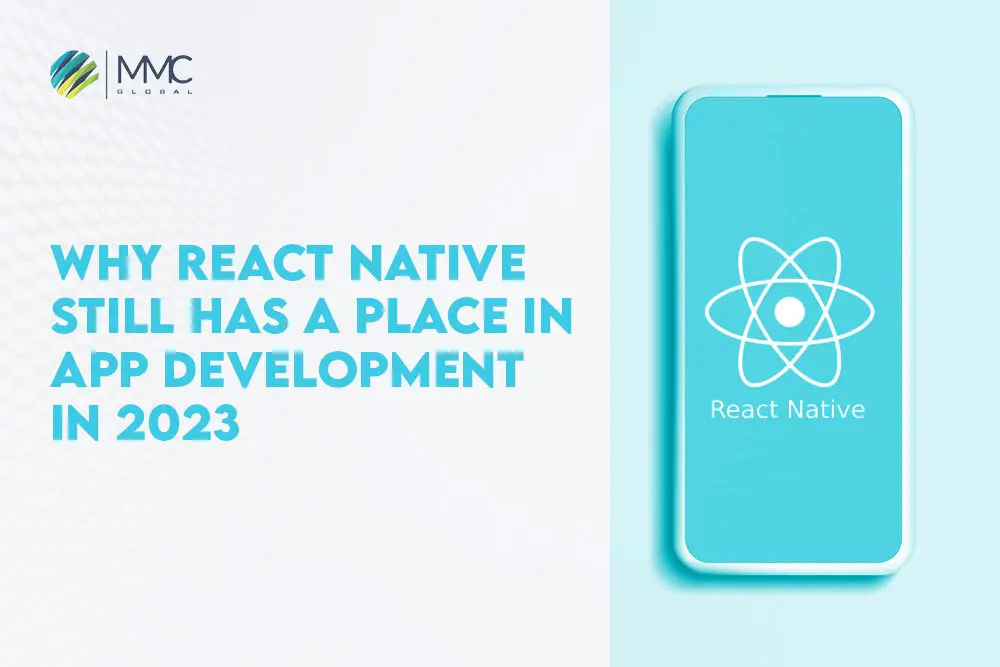Why React Native Still Has a Place in App Development in 2023


As the world of software development continues to advance rapidly, mobile app development remains at the forefront of technological innovation. With the increasing demand for cross-platform mobile applications, developers are constantly exploring different frameworks and tools to build robust and efficient apps.
Among the many options available, it has emerged as a popular choice. Despite the rise of other frameworks like Flutter, React Native continues to hold its place in app development in 2023.
In this blog, we will discover the reasons why React Native App is still relevant and continues to be a preferred choice for app development in the year 2023.

Established Ecosystem
It has been around for several years and has established a mature and robust ecosystem. It has a large and active community of developers who contribute to its development, offers support, and share resources. This rich ecosystem includes a wide range of libraries, tools, and plugins that make app development faster and more efficient.
The extensive documentation and community-driven resources make it easier for developers to learn and troubleshoot any issues, making React Native a reliable choice for custom software development.
Cross-platform Compatibility
It’s a cross-platform framework that allows developers to build apps that can run on iOS and Android platforms. This means that developers can write code once and use it across multiple platforms, saving time and effort in the development process.
React Native achieves this by using a single codebase written in JavaScript and natively rendering the user interface components on each platform. This approach results in apps that have the performance and look-and-feel, of native apps, providing a seamless user experience.
Cost-effective Development
One of the key advantages of React Native is its cost-effectiveness. Building separate apps for iOS and Android can be time-consuming and expensive, as it requires maintaining two different codebases.
However, with this, developers can use the same codebase for both platforms, significantly reducing development time and cost. An ideal choice for startups and small businesses with limited resources who want to build high-quality mobile apps without breaking the bank.
Quick Development Cycle
It follows a hot-reloading feature, which allows developers to see the apps’ changes in real time without recompiling the entire codebase. This significantly speeds up the development process, as developers can quickly iterate and make changes.
Additionally, React Native provides a rich set of pre-built UI components, allowing developers to prototype and build complex user interfaces with minimal effort rapidly. A rapid development cycle suits projects with tight deadlines requiring frequent updates and iterations.
Large Developer Community
It covers a large and active developer community, which makes it easier for developers to find solutions, share knowledge, and stay up-to-date with the latest developments. This community-driven approach ensures that React Native remains relevant and continues to evolve with the changing needs of the software development landscape.
The community also provides extensive support through forums, documentation, tutorials, and open-source libraries, which help developers overcome challenges and build robust apps.
Easy Integration with Native Code
It provides a bridge that allows developers to easily integrate native code written in Objective-C, Swift, or Java into their apps. If certain functionalities cannot be achieved using React Native components, developers can seamlessly integrate native code to achieve the desired outcome.
This flexibility allows developers to leverage native codebases and third-party libraries, making native apps a versatile framework for building custom software development.
Existing Codebase Maintenance
For businesses with an existing app built with this, it makes sense to continue using it for future updates and maintenance. Rewriting the entire app in a different framework like Flutter can be time-consuming and costly. React Native app development company allows businesses to continue leveraging their existing codebase, making it a cost-effective app maintenance and updates option in 2023.
Strong Performance
React Native Apps are known for their high performance and smooth user experience. Since its components are rendered natively on each platform, they have the same performance characteristics as native apps. React Native also optimizes app performance using a separate thread for UI rendering, ensuring smooth animations and transitions.
Additionally, it allows developers to optimize performance by using native modules and integrating with native code, providing flexibility and control over the app’s performance.
Flexibility and Customization
React Native allows developers to customize the app’s appearance and behavior according to their specific requirements. Developers can use the extensive library of pre-built UI components or create their own custom components to realize the desired look and feel of the app. It also supports theming, styling, and localization, making it easy to create visually appealing and user-friendly apps tailored to the target audience.
Seamless Updates
React Native allows developers to push updates to the app without requiring users to download and install a new version from the app store. This makes it easier to roll out bug fixes, performance improvements, and new features to the users, ensuring the app remains up-to-date and relevant. This seamless update process can lead to better user engagement and retention, making it a preferred choice for businesses that need to iterate and update their apps frequently.
Read more: How React Native App Development Helps in Building Robust Application
Conclusion
React Native continues to have a significant place in app development in 2023 due to its established ecosystem, cross-platform compatibility, cost-effectiveness, quick development cycle, large developer community, easy integration with native code, existing codebase maintenance, strong performance, flexibility, seamless update process.
It remains a popular choice for custom software development, especially for businesses looking to build cross-platform mobile apps that offer a native-like user experience while optimizing development time and cost. React Native’s continuous evolution and community-driven support will remain relevant in the ever-changing app development landscape in 2023 and beyond.



